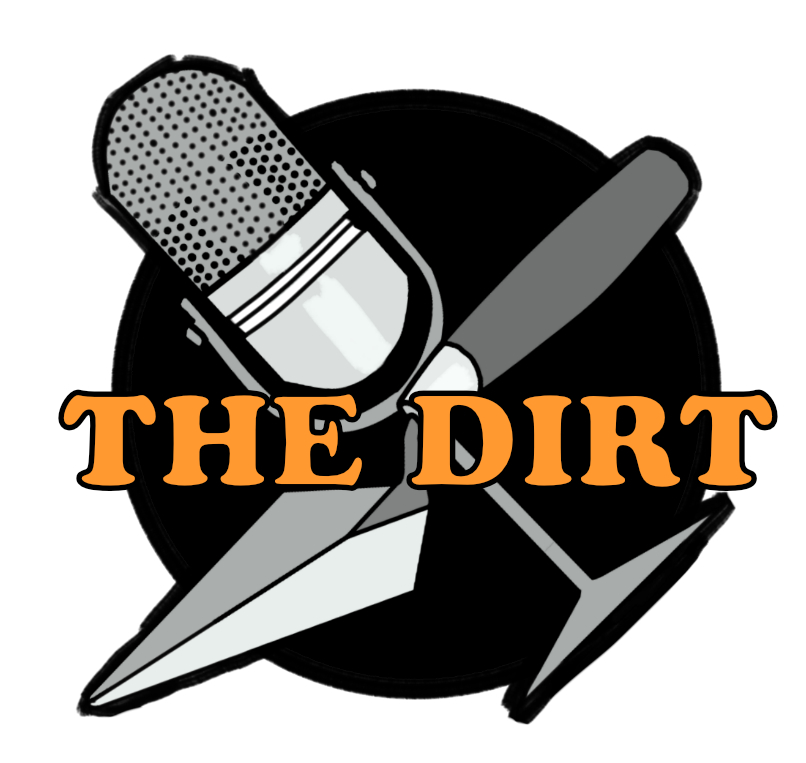This is Anthropology Miniseries (with American Anthropological Association)
Special Series
This five-part interview series was made possible by the American Anthropological Association, and all interviews took place during the 117th Annual Meeting, held November 14-18, 2018 in San Jose, CA. Check out the rest of the AAA podcast library to find even more great stories from anthropology!
This is Anthropology 1 - Anthropology through the Ages (with Alice Beck Kehoe)
We open this series with a distinguished figure in American anthropology, Alice Beck Kehoe, who provides an illuminating, albeit blunt, history of the social and intellectual environment out of which the discipline of anthropology emerged in the United States. She discusses the roots of anthropological study in American military expansionism, the contributions of anthropologists like Franz Boas and Margaret Mead, her thoughts on the current state of American anthropology, and a particularly scintillating impetus for a teenaged Alice being attracted to the field.
To learn more about Dr. Beck Kehoe’s work, check out:
Controversies in Archaeology (2008)
”Permitted, or excluded: Scientific archaeology and the maintenance of legitimating myths” (Complutum, 2013)
Other sources of information:
Junius Bird excavation at Huaca Prieta, Peru, 1946 (Youtube)
Margaret Mead And Humanity's Coming Of Age (The Attic)
Margaret Mead: Human Nature and the Power of Culture (Library of Congress)
Franz Boas (Columbia University Department of Anthropology)
Transcript of episode “Who Was Franz Boas?” of Think Tank (PBS)
This is Anthropology 2 - Mentoring (with Casey Miller and Gregory Mitchell)
Association for Queer Anthropology co-chairs Casey Miller and Gregory Mitchell join us for a conversation about the importances of mentoring for junior and established scholars, the increasing presence of intersectionality within research and representation in the discipline, and how informal mentoring has been crucial for the survival of queer anthropology since its early days.
More information about the work that Dr. Miller and Dr. Mitchell do can be found at:
Casey James Miller’s research agenda
“Dying for Money: The Effects of Global Health Initiatives on NGOs Working with Gay Men and HIV/AIDS in Northwest China” (Medical Anthropology Quarterly, file available here)
Inside the Circle: Sexuality, HIV/AIDS, and Civil Society in Post-Socialist Northwest China
Gregory C. Mitchell’s Williams faculty profile
“Gringo panic: estrangeiros predadores, eventos esportivos globais e prostituição no Rio de Janeiro” (PLURAL, Portuguese, contact author for English)
“Evangelical Ecstasy Meets Feminist Fury: Sex Trafficking, Moral Panics, and Homonationalism during Global Sporting Events” (GLQ: A Journal of Lesbian and Gay Studies)
This is Anthropology 3 - Expanding Anthropology in K-12 Schools (with David Homa)
Our new favorite teacher David Homa joins us for a conversation about the necessity of incorporating anthropology in at all levels in classrooms, what he and his students love about learning anthropology, and the life-changing successes he’s had with bringing the world to his students without stepping foot off campus.
For more information about Mr. Homa’s work, check out:
Los Gatos High School Introduction to Anthropology Syllabus
Success stories from Homa’s School-2-School partnership with Kisumu Day High School
Other sources of info:
Final Report on Kisumu, Kenya (UN Millennium Cities Initiative)
This is Anthropology 4 - Diversity and Anthropology in our Communities (with Alisha Winn)
Alisha Winn sits down with Anna and Amber to discuss her path through anthropology and how it brought her to working as an applied cultural anthropologist in blighted historic African-American communities. Winn tackles the thorny topic of gentrification, the subtle yet powerful ways that power and agency are communicated between groups, the importance of determining who benefits from diversity initiatives, where anthropology needs to go in order to be successful in its diversity, advice for those interested in her line of work, and Zora Neale Hurston’s importance as a pioneer of anthropology and the unhealed wounds that still remain from the 1928 Storm described in Their Eyes Were Watching God.
To learn more about Dr. Winn’s work and what she discussed on this episode, check out:
Diversity Dilemmas and Opportunities: Training the Next Generation of Anthropologists (American Anthropologist)
Black Entrepreneurship: Contradictions, Class, and Capitalism (Journal of Business Anthropology)
The Remembering St. Petersburg Oral History Project: Youth Empowerment and Heritage Preservation through a Community Museum (Transforming Anthropology)
Other sources of info
West Palm Beach Community Redevelopment Agency Begins Restoration Of Historic Sunset Lounge (The Palm Beacher)
Florida’s Okeechobee Hurricane Of 1928 And The “Disgraceful” Burial For Thousands Of Blacks (Black Then)
Florida Frontiers “The Hurricane of 1928” (My Florida History)
Hurricane of 1928 African American Mass Burial Site entry in the National Register of Historic Places
This is Anthropology 5 - From Academia to Industry (with Rachel Ceasar)
Consultant and multi-faceted researcher Rachel Ceasar walks us through her journey from student in medical anthropology to her present career as a health and technology anthropologist. She discusses introducing ethnography to industry, doing anthropology outside the university sphere, what skills she’s picked up along the way, and she reminds us of the importance of sharing anthropological research’s potential for valuable contributions to an organization.
For more information about the work that Dr. Ceasar does, check out:
Kinship across conflict: family blood, political bones, and exhumation in contemporary Spain (Social Dynamics: A journal of African studies)
Rachel Ceasar’s research experience
